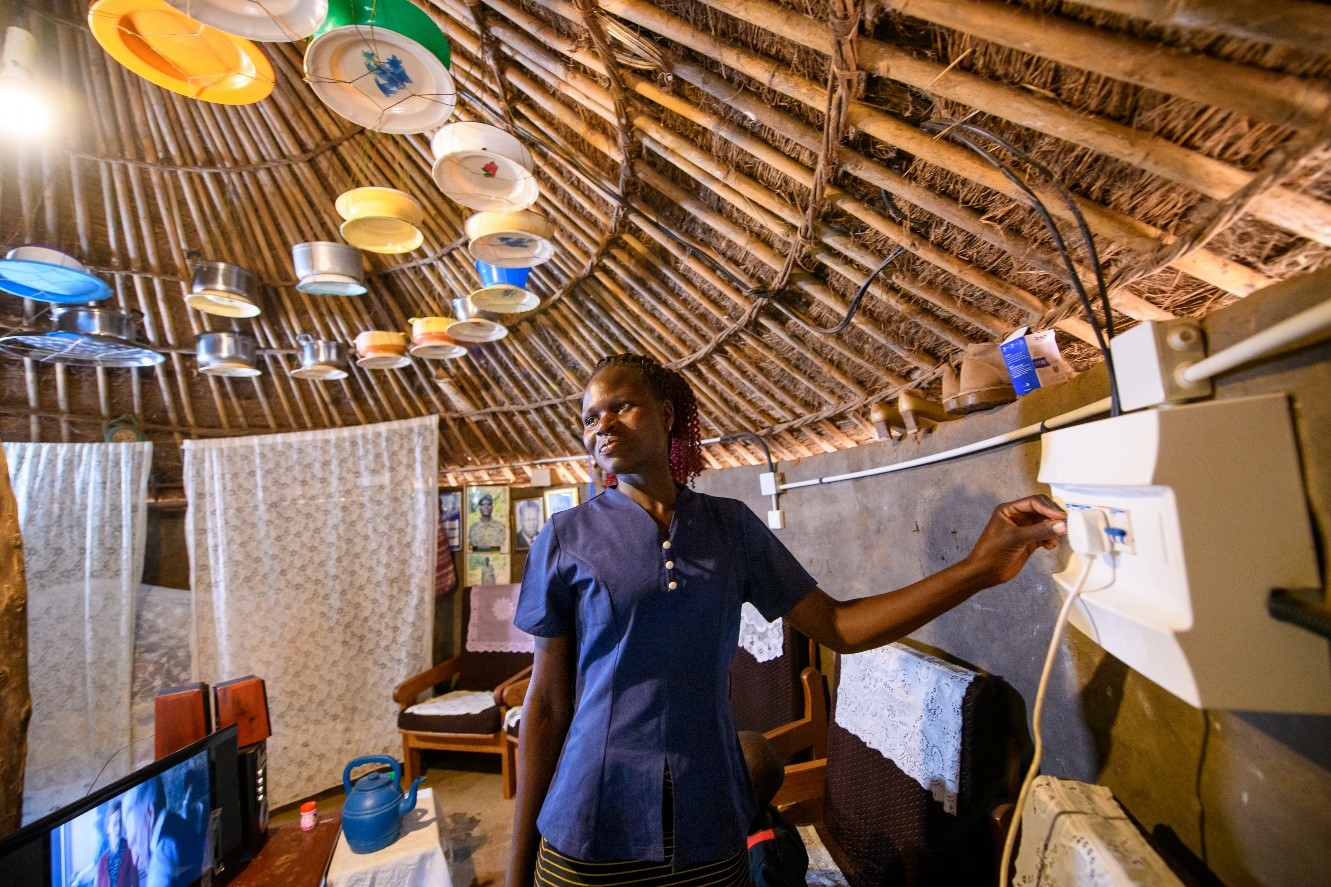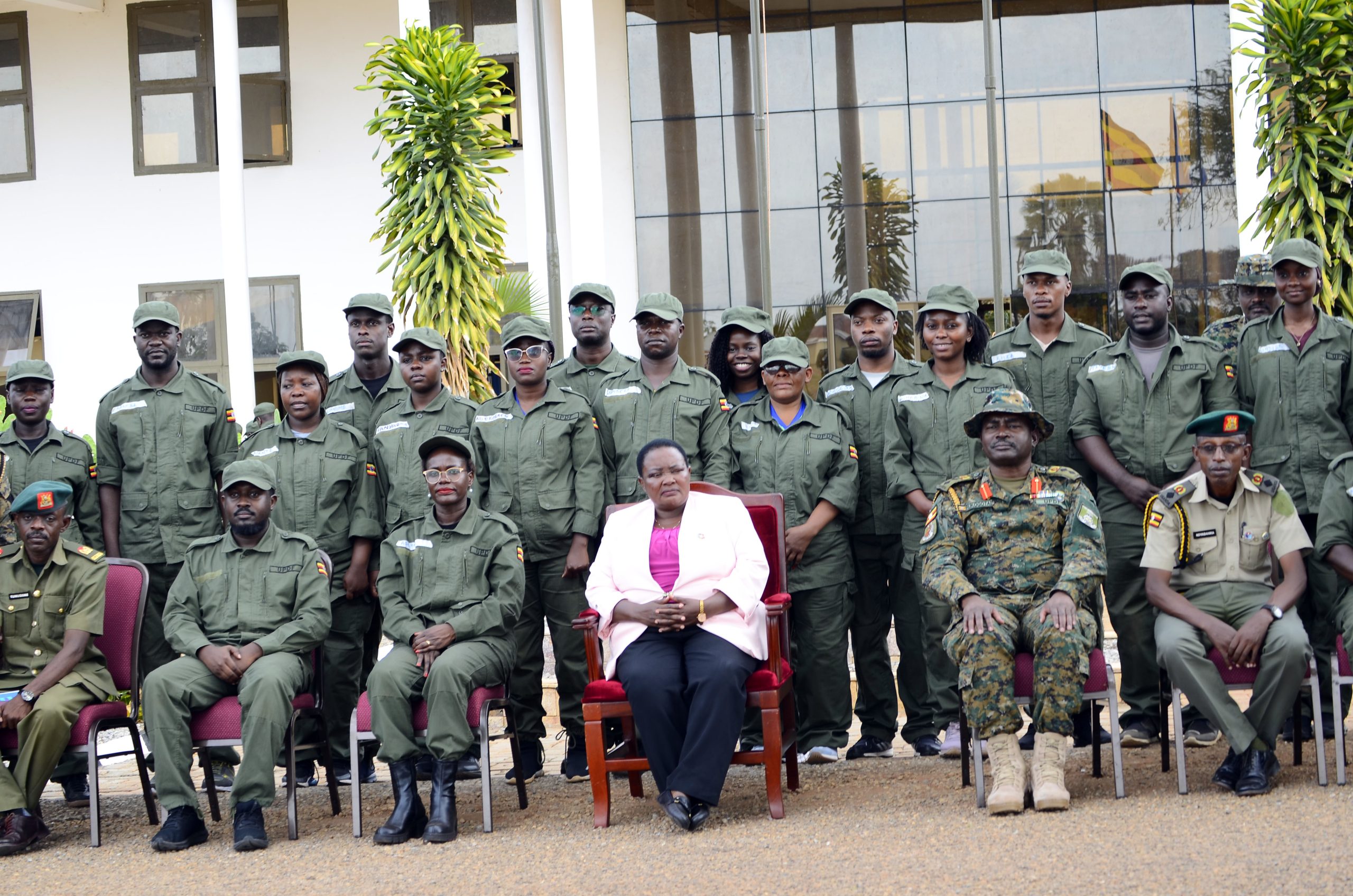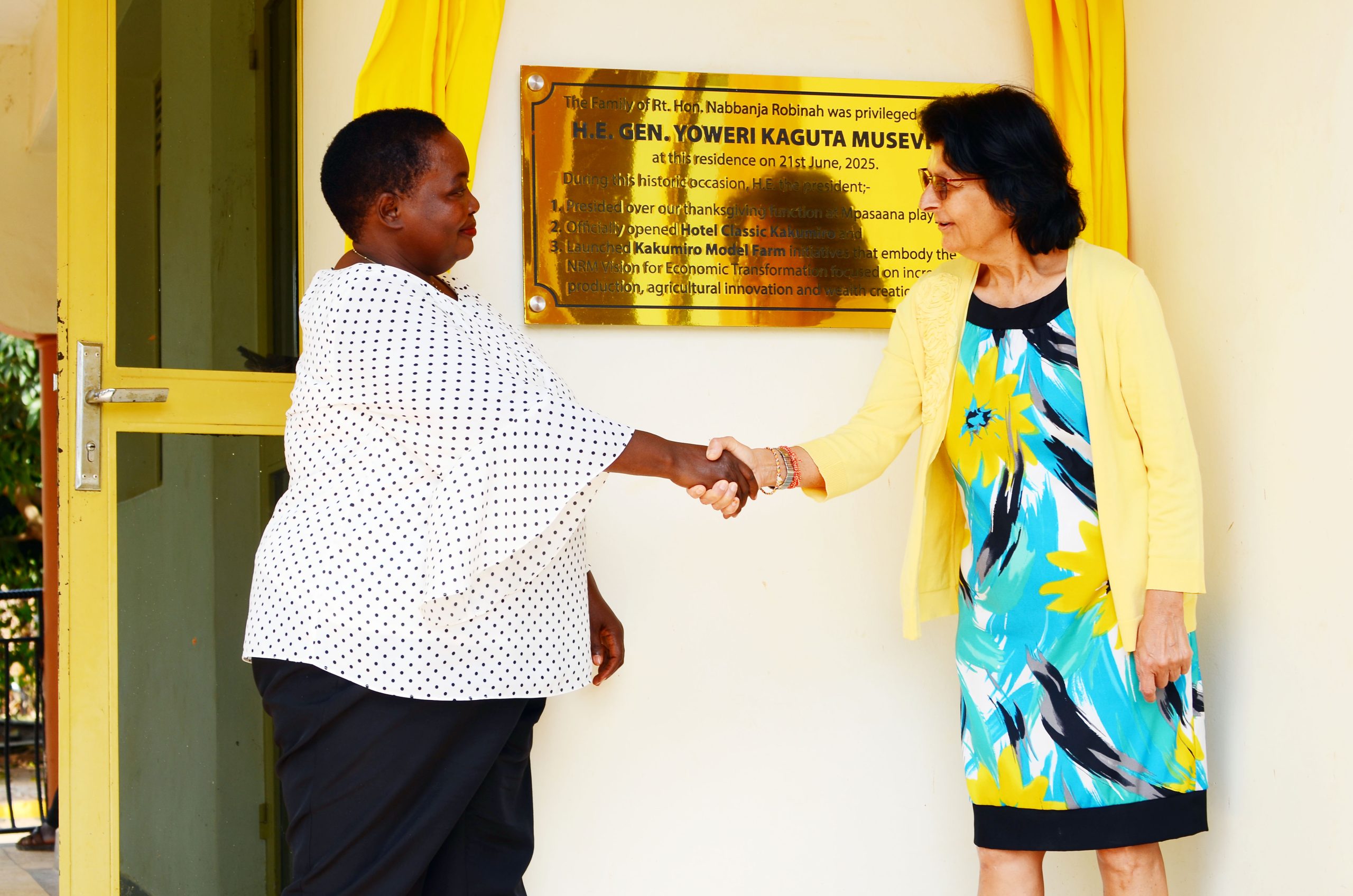In the heart of Lamwo District, amid the quiet Paloga Village, Winfred Adokorach, a 25-year-old tailor and a mother of one, strongly recalls a childhood covered in darkness during the nights. Born and raised in this remote corner of Uganda, she had never travelled beyond the district’s boundaries or seen the transformative power of electricity. That is, until now.
“Studying at night was a luxury I could only dream of because my parents couldn’t afford a kerosene lamp or even a candle,” Adokorach recollects.
But fate took a turn when, after years of longing, their village basked in the glow of electricity for the first time. The arrival of mini grids, powered by solar energy, brought in a wave of change that touched the lives of women and children in ways they could have never imagined.
“Now, my children and nephews can read their books at night, using the electric light,” Adokorach explains. The advent of electricity has not only brightened their lives but also sparked a newfound sense of security and empowerment within the community. Adokorach recounts the nights filled with fear as they grappled with slithering snakes lurking in the shadows of their humble dwellings.
“Previously, our village was extremely dark. Because of this, we struggled with snakes in our manyattas”, she says. Moreover, the absence of light cast a veil of vulnerability, making them easy targets for unexpected incidents in the dark. However, with the installation of a security light outside their hut, Adokorach and her family now breathe easier. Access to pit latrines has also become simpler, and the risk of night attacks has significantly reduced.

Adokorach basks in the glow of her mud hut, empowered by the new solar energy installation that now illuminates her home.
Adokorach notes that the children are now comfortable staying at home to watch TV, rather than loitering to far and potentially unsafe places.
But it is not just the children who have found solace in the glow of electricity. Mercy Angorit, a 40-year-old resident of Agoro Village, shares her tale of transformation. Once consumed by daily chores and tending to her garden, Angorit now stands as a beacon of hope in her community.
Empowered by the constant supply of electricity, she operates a small-scale retail shop that buzzes with life, thanks to renewable energy. Angorit’s entrepreneurial spirit has been reignited, and she dreams of bringing together other women to establish a collective business venture, such as a milling plant to add value to their farm produce.
Adokorach and Angorit’s stories are a glimpse into the impact of the Promotion of Mini Grids for Rural Electrification in Uganda project. With a mission to bridge the gap and bring power closer to communities, this initiative has become a lifeline for many residents of Lamwo District.

Adokorach watching TV with her family
Commissioned in June 2022, the solar-powered mini grids, a collaborative effort of Government of Uganda under the Development Initiative for Northern Uganda (DINU), German Federal Ministry for Economic Cooperation and Development (BMZ), the European Union, and a private sector partner, Winch Energy, have ushered in a new era of possibilities through the installation of 20 kWp to 80 kWp- capacity solar minigrids in 25 villages. The mini grids have a combined installed capacity of one megawatt and can supply approximately 11,200 people through a grid-like electricity service.
The advent of solar power in the district has brought about a remarkable transformation, providing communities with access to a continuous power supply that empowers people to enhance their livelihoods and elevate their quality of life. Now, more and more women in Lamwo, like Angorit who relies on solar power to operate her shop fridge, and Adokorach who uses it to light her house, are embracing solar energy-powered machines to enrich their daily lives and boost their economic prospects.
Beyond the glow of light bulbs, the true essence lies in the impact on livelihoods and well-being. Access to electricity is no longer a luxury but an essential lifeline. It provides lighting for households and schools, enabling children to study and grow. It powers local businesses, safeguarding food and medicine in refrigerators, and it fuels communication, ensuring that no one is left disconnected in this interconnected world.
While Lamwo District strives to catch up with the electrification rates seen in major towns, mini grids have emerged as a symbol of hope. They offer a practical and affordable solution, bringing reliable and grid-like electricity to villages that were once cast into perpetual darkness.
The journey is far from over. The focus now lies on the productive use of electricity, as efforts are made to provide training and access to finance for small and medium enterprises, smallholder farmers, and households. By harnessing the power of renewable energy to drive economic development, the mini-grid business model aspires to flourish sustainably, illuminating countless lives along the way.
Reporting by GIZ – ENERGY TEAM





